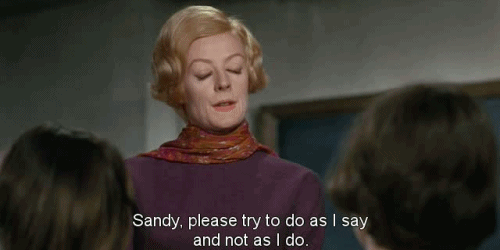The 10 Pillars of Health: What Every Busy Professional Needs to Know
Maximize Your Body's Potential for Peak Performance
🔑Key Points
I give you the 10 Pillars of Health. Any amount of time you spend educating yourself on these will be time well spent. Remember: You are in charge of your health, not your doctor. Here is the gameplan: I show you the door, you kick it open, and walk through it.
Adequate nutrition
Exercise
Getting quality sleep
Management of existing conditions
Stress management
Meaningful relationships
Enhancing activities
Defining your life’s mission/having a purpose in life
Don’t smoke
Don’t drink
📰This Issue
This post is an introduction to the 10 pillars of health, or more like a 30,000 foot view. I will expand on each of these principles in future posts. If you educate yourself in each of these categories and implement these principles in your life, you’ll be good to go, for the most part.
🗺️A Framework for Life
Whenever I ask people what the most important thing for them is, I typically get the same handful of answers. You can probably imagine what these are. Some people say “my kids, my family, or my friends”, occasionally even “my pet” comes up. But there also appears to be a separate group of people - who may be single, or maybe more career oriented, or objective driven, and they typically answer things like “my legacy”, or maybe “my business”, or maybe even a higher purpose… Either way, the answer tends to be some sort of version of “fortune, fame, or glory”. Pretty standard.
Interestingly, when I ask my patients in the hospital the exact same question, instead of getting this list of standard answers, the answer is always the same, 100% of the time, no exceptions: “I just want to get better so I can get out of here, doc”.
Now this is obviously comparing apples to oranges because the context and circumstances are not the same and there is a bunch of confounding variables including selection and environmental bias, leading the witness, and a bunch of other stuff - And although we are not into poorly designed experiments or shitty science here, I still think we can draw valid conclusions about the human condition from the above observations.
Here is one of those conclusions, for example: Whenever we are sick, and I don’t mean “I have a cold”-sick, I mean sick sick, it seems like most people tend to become acutely aware of how fragile and short life is, and how quickly and effortlessly everything can end. That’s pretty fair, no? I would say so. Well, it turns out that it also makes sense: Traditional priorities get temporarily displaced to the back seat to make room for the only thing that matters at that point: not dying. Here is why that happens:
If you are not familiar with Maslow’s pyramid of needs here is the TL;DR version: Abraham Maslow was a psychologist who proposed the Hierarchy of Needs, which is often depicted as a pyramid with five levels (see below). Maslow’s hierarchy suggests that individuals must satisfy lower-level needs before moving up to higher levels. As basic needs are met, people seek to fulfill higher needs. While self-actualization - the pinnacle of the hierarchy, represents the desire to become the best version of oneself and achieve personal growth and fulfillment, health-related issues fall within the basic needs categories (the bottom two), meaning that without them, the entire pyramid falls apart.
Stated differently, being alive and in good health is what allows us to pursue whatever it is that we consider most important to us:
Is it your kids? Well, you won’t be able to interact much with them if you don’t remember who they are because you had a stroke that could have been prevented.
Is it your business? Good luck running that meeting after your third round of chemo…
Your legacy? You won’t leave too much of a legacy if you die 3 decades ahead of time because you didn’t get your diabetes under control.
I guess the point that I am trying to make is that our health is way more important than we realize while healthy. And in reality it requires constant and dedicated attention because it is what allows us to pursue the things that are most important to us. For this reason, I made my health my priority a few years ago and things like going to the gym daily are just non-negotiable for me.
🥣The Plot Thickens
Unfortunately, here in the U.S. we practice CURATIVE medicine instead of PREVENTIVE medicine - this is definitively a topic for a different post because it is very complex and there are many reasons why this is the case: Some cultural, some educational, and some way more nefarious and complex than that. This is what I mean when I say that YOU ARE IN CHARGE OF YOUR HEALTH. Gotta come to terms with the fact that you have take care of it yourself.
Now the good news is you subscribe to this newsletter - and in here we talk about how to live longer, better, and more productive lives, so you use that extra time and that extra energy and do whatever it is that happens to be the most important thing for you. Anyway, with that in mind, here we go. The ten pillars (drumroll please):
🍽️ 1. Adequate Nutrition
I have a lot to say with regards to nutrition - but that will require a number of posts. Supplements make part of your nutrition, btw. Anyway, for now, here are the two things I want you to remember:
I) If your diet needs a cheat day, you are doing it wrong.
Any diet that requires a cheat day is destined to fail because by definition it is unsustainable, that is, it relies on motivation and willpower for success, and both of those are unreliable. Instead, you should focus on building healthy habits thorough discipline, being honest with yourself, and creating a diet you can sustain for the rest of your life without needing a cheat day. You have to be happy and satisfied with it from day 1. For a book on how to create good habits check out: Atomic Habits by James Clear
II) The three components of nutrition are
Timing - Intermittent fasting. This is how we evolved and are built for.
Quantity - Figure out how many calories you need/want, and account for protein first.
Quality - Focus on fresh, non-processed items.
You should control all 3 of these categories at all times. But if you are letting yourself go, you need to control at least 2. For example, if you are gonna eat shitty food, eat it within your time window and in normal amounts. If you gonna eat a lot, at least make it healthy food. Etc.
💪🏽 2. Exercise
Exercise is by far the number one intervention anyone can implement to improve their health. Absolutely nothing comes close to it. It is actually pretty impressive:
🛌🏾 3. Quality Sleep
Studies have found that lack of sleep can more than double the risk of death from cardiovascular disease and other conditions. Here is a meta analysis on the increased risk of dying on either end of the distribution of sleep duration (Yes, sleeping for too long is bad too): Cappuccio et. al., Sleep duration and all-cause mortality: a systematic review and meta-analysis of prospective studies. Sleep. 2010 May;33(5):585-92. doi: 10.1093/sleep/33.5.585.
Here is one of my posts on 3 easy and free ways to improve sleep quality. I will write a post on some of the not-so-free methods next:
🧑🏽⚕️ 4. Management of existing conditions
Depending on the current state of your health this may be the most important category. For example, if you are diabetic, I don’t care how much yoga you do or how many ice baths you take, without daily insulin injections you will die. If you have renal failure, you need dialysis, not vitamins or meditation.
I will write a post on how to take charge of your health, how to interact with the healthcare system, and how to talk to your doctor. But in the meantime:
Find a PCP that more or less looks like you and has your same values, and
Do what they say
💆🏻 5. Stress Management
People who report a lot of stress have a 43% increased risk of premature death. Keller A, Litzelman K, Wisk LE, et al. Does the perception that stress affects health matter? The association with health and mortality. Health Psychol. 2012;31(5):677-684. doi:10.1037/a0026743.
A 2021 study shows that physical and mental stressors can lead to sudden cardiac death (SCD). La Rovere MT, Gorini A, Schwartz PJ. Stress, the autonomic nervous system, and sudden death. Auton Neurosci. 2022 Jan;237:102921. doi: 10.1016/j.autneu.2021.102921. Epub 2021 Nov 18. PMID: 34823148.
The best ways to manage stress are regular exercise, mindfulness, strong social connections, and seeking professional help.
🫱🏻🫲🏽6. Meaningful relationships
Pretty fresh coming from an introvert. But even for extreme introverts, maintaining healthy and meaningful relationships is extremely important. Humans are social creatures after all.
Social support and connections have been extensively studied in relation to health outcomes, including mortality. Research consistently suggests a strong association between social support, social connections, and decreased mortality rates. Individuals with strong social relationships, a supportive social network, and a sense of community tend to have better health and lower mortality rates for several reasons:
Emotional Support: Having friends, family, or a supportive community to turn to during difficult times reduces stress, which can positively impact overall health and longevity.
Mental Health: Social connections are linked to better mental health, reducing the risk of depression and anxiety, thereby improving overall well-being and lowering the risk of self-harm or substance abuse that can affect mortality.
Behavioral Influence: Social support can encourage positive health behaviors, such as exercising, eating well, and seeking medical help, leading to lower mortality rates due to healthier lifestyles.
Physiological Effects: Strong social connections and support networks have been linked to lower blood pressure, stronger immune system function, and reduced inflammation, all of which contribute to better health and lower mortality rates.
🧖🏽7. Enhancing activities
Sauna, ice baths, massage, meditation, yoga, education, mindfulness, etc...
All of these play a very important role in your health. I sauna daily and I take my education very seriously (never stop learning kids), but I pretty much suck at the rest. Calm down people, work in progress.
Here is a link to my post about Sauna:
🎯8. Define your life’s mission/vision and purpose
Defining your life's mission, vision, and purpose holds significant implications for good health and reducing mortality risks. Having a clear sense of purpose contributes to overall well-being, impacting physical health, mental resilience, and longevity. Here are a few:
Enhanced Mental Well-being: A defined life mission or purpose provides a sense of direction, contributing to lower stress levels, reduced anxiety, and a more positive outlook. These factors are associated with better mental health and a decreased risk of conditions like depression, which, if left unaddressed, can impact mortality.
Motivation for Healthy Lifestyle: When individuals have a strong sense of purpose, they often adopt healthier habits. They're more inclined to engage in regular exercise, maintain a balanced diet, and prioritize self-care, all of which reduce the risk of chronic diseases and premature mortality.
Resilience and Longevity: Having a clear life mission and purpose contributes to resilience in the face of challenges and adversity. This resilience is linked to a longer life expectancy and improved ability to cope with stress, reducing the physiological impact of stress-related health issues.
Social Connections and Support: A defined purpose often leads to the formation of meaningful social connections and relationships. Strong social networks are associated with lower mortality rates, indicating that a purpose-driven life often leads to the cultivation of supportive social connections.
Here is Cus D’Amato talking to Mike Tyson about the importance of having a purpose in life.
🚭 9. Don’t smoke
Smoking is a leading cause of preventable diseases and deaths. The WHO reports that tobacco use causes more than 8 million deaths annually, with about 7 million of those due to direct tobacco use and over 1 million due to non-smokers being exposed to secondhand smoke.
WHO report on tobacco being a leading cause of death, illness, and impoverishment: https://www.who.int/news-room/fact-sheets/detail/tobacco
🍻10. Don’t drink
At this point the literature is very clear that there is no health benefit to alcohol. None.
According to the National Institute on Alcohol Abuse and Alcoholism, alcohol-related deaths in the U.S. reached 95,000 per year. Here is the WHO report on alcohol being a causal factor in more than 200 disease and injury conditions:
https://www.who.int/news-room/fact-sheets/detail/alcohol
Thank you for reading!
If you found this post helpful please share it with someone you care about or someone looking to start improving their health. This is one of those things where the 80-20 rule definitively applies - even marginal progress across all these categories will go a long way and will end up having a significant impact on ones longevity and performance. Thank you for reading the newsletter and we’ll break these down further as we go.
Disclaimer: This content is provided for educational purposes only and should not be construed as medical advice. Always consult with your primary care physician (PCP) or a qualified healthcare professional before making any changes to your lifestyle, diet, or exercise routine. The information presented in this article is not intended to diagnose, treat, cure, or prevent any disease. Individual results may vary. The author and publisher of this article are not responsible for any adverse effects or consequences resulting from the use or application of the information provided. Please use your own discretion and judgment when implementing any suggestions or recommendations.













